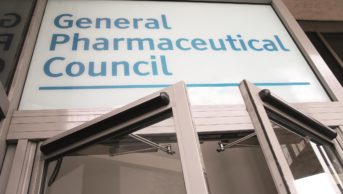
Shutterstock.com
The General Pharmaceutical Council (GPhC) is to meet pharmacy schools to discuss poor performance by preregistration students in this summer’s exams.
Board papers discussed at its council meeting held on 9 November 2017 reveal that the GPhC has already contacted several pharmacy schools with low pass rates and it will be meeting with them to explore the poor performance of their students in more depth.
The Pharmaceutical Journal
reported earlier this year that the lowest pass rate from a pharmacy school in the June preregistration assessment was 60.8% from Kingston University.
In a statement the GPhC said: “The GPhC accredits university MPharm degrees, and if candidates from any school appear to perform poorly, in comparison with others, the GPhC can call a meeting with them to discuss the pass rate in more detail. We did this after the June 2017 sitting and may do the same after the September 2017 sitting as well.”
The council papers also revealed that 15% of students taking this September’s preregistration assessment asked for an adjustment to their exam conditions while taking their paper. Of the 125 students who asked for the adjustment, 105 were granted their request in full and 16 were granted partially.
A specific learning need such as dyslexia or dyspraxia was the most common reason for granting adjustments, followed by anxiety and stress.
In total, 110 students were given 25% extra time to complete their assessment, and eight students were allowed 50% extra.
In last September’s assessment 17% of students requested an adjustment, but in June’s exam the figure was just 7.6%.
In its report the GPhC said: “An emerging pattern is that the percentage of requests in September tends to be higher than in June and there is further work to be done to explain this difference.”
The council papers also show that the number of European pharmacists registering with the GPhC fell by four-fifths compared with last year.
The number of pharmacists from the European Economic Area (EEA) registering with the GPhC fell from 102 in the second quarter of 2016–2017 to 20 in the second quarter of this financial year.
From November 2016 all EEA applicants had to provide evidence of their English language competency before they could come onto the GPhC’s professional register.
The GPhC said: “It is possible to speculate about a link with Brexit and/or with the introduction of language controls for EEA applicants to the register.”
The council papers also record a significant increase in the number of fitness-to-practise referrals to the GPhC this year, with 447 being recorded in the second quarter of this year, compared with 343 in the same period last year.
The GPhC said: “We have recently undertaken some work to understand this increase, however it does not appear to be the result of any specific issue or cause. Additionally, we are not seeing a shift in the types of cases referred or the complexity of cases which we receive. We will continue to carefully monitor this data going forward.
“We understand that other health professional regulators have also seen a recent upward trend in the number of concerns received.”


